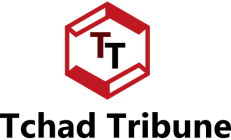The Technical Review on School Feeding in Refugee Settings has been developed for the World Food Programme (WFP), United Nations High Commissioner for Refugees (UNHCR), Cooperating Partners, Operational Partners and Government Counterparts to guide the design, implementation and monitoring of school feeding programmes in refugee settings.
The Technical Review is guided by the commitments outlined in the Global Compact on Refugees, with the ultimate aim of contributing to and achieving the Sustainable Development Goals (SDGs) of the United Nations Agenda 2030 for both Refugees and Host Communities.
It is informed by WFP’s School Feeding Strategy 2020-2030; WFP’s 2021 State of School Feeding Worldwide; UNHCR´s Refugee Education Strategy and the UNHCR/WFP Joint Strategy for enhancing self-reliance in food security and nutrition in protracted refugee situations (2016). The Review is shaped by the first-hand account of refugees who have shared their experience and reflected upon the challenges, opportunities and hopes for the future that school feeding represents. During the development of this body of work, field missions have been carried out in three different refugee operations (in Kenya and Rwanda) to identify and inform good practices, assess policy and capacity gaps, and develop understanding of the refugee experience. The field missions, dialogue with refugees through focus group discussions (FDGs), key informant interviews (KIIs), as well as extensive research about school feeding in refugee settings, lay the foundation of the technical review and guidance. It was also drafted with inputs from multiple functioning units at WFP and UNHCR, including: the School Based Programmes (SBP) Service, Nutrition Division, Emergencies and Transition Unit (PRO-P), Climate & Disaster Risk Reduction Programmes Unit (PRO-C), Regional Bureau for East Africa (RBN), Regional Bureau for the Middle East and North Africa (RBC), UNHCR’s RB for EHAGL region, UNHCR HQ/GVA, and UNHCR HQ/Education, amongst others.
The document is developed under the framework of the UNHCR/WFP Global Memorandum of Understanding (MOU)-2011, which outlines the ultimate objectives and areas of cooperation between the two agencies and delineates roles and responsibilities based on the comparative advantage of each agency. These are an elaboration of the accountabilities of each agency with regard to school feeding programmes, outlined under the education sector in the global MOU; and provides practical suggestions and operational standards for the implementation of the programme.
Source: World Food Programme
